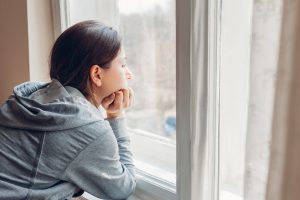 Mental health has become the focus of many reports during the coronavirus pandemic. New research from McMaster University suggests that the pandemic has created an unusual situation where mental health has impacted physical activity. It has created a situation for many people, either being a motivator or a barrier to physical activity.
Mental health has become the focus of many reports during the coronavirus pandemic. New research from McMaster University suggests that the pandemic has created an unusual situation where mental health has impacted physical activity. It has created a situation for many people, either being a motivator or a barrier to physical activity.
Most people want to be physically active during the pandemic, but they find it difficult due to stress and anxiety. More than 1,600 subjects were surveyed in an effort to understand how mental health, physical health, and sedentary behavior have changed throughout the course of the pandemic.
Advertisement
The results outlined in the journal PLOS ONE found that participants reported higher psychological stress and moderate levels of anxiety and depression, which were triggered by the pandemic. Physical activity was also down about 20 minutes per week, and strength training down approximately 30 minutes per week. Sedentary time was up 30 minutes per day compared to six months prior to the pandemic.
Those who reported the most significant declines in physical activity also had the worst mental health outcomes
Participants who were able to maintain their physical activity levels were doing much better mentally.
Economic situations also played a role, particularly among younger adults.
“Just like other aspects of the pandemic, some demographics are hit harder than others, and here it is people with lower income who are struggling to meet their physical activity goals,” says Maryam Marashi, co-lead author of the study. “It is plausible that younger adults who typically work longer hours and earn less are lacking both time and space, which is taking a toll.”
Physical Activity Toolkit
Advertisement
As part of the study’s conclusion, researchers designed an evidence-based toolkit to help those struggling with mental health and physical activity. It included the following steps:
- Adopt a mindset: Some exercise is better than none.
- Lower exercise intensity if feeling anxious.
- Move a little every day.
- Break up sedentary time with standing or movement breaks.
- Plan your workouts like appointments by blocking off the time in your calendar.
During the pandemic, it has become evident that there is a need for psychological support systems to help people maintain their physical activity levels. This is especially needed in stressful times to help prevent the development of a mental health crisis.
By ensuring proper physical activity, mental health can be affected positively. If you are struggling with finding the time or the motivation to keep up with daily exercise, try using the toolkit to keep yourself on schedule. Maintaining positive mental health is one of the most important ways to being able to handle the lockdowns imposed by the pandemic.
